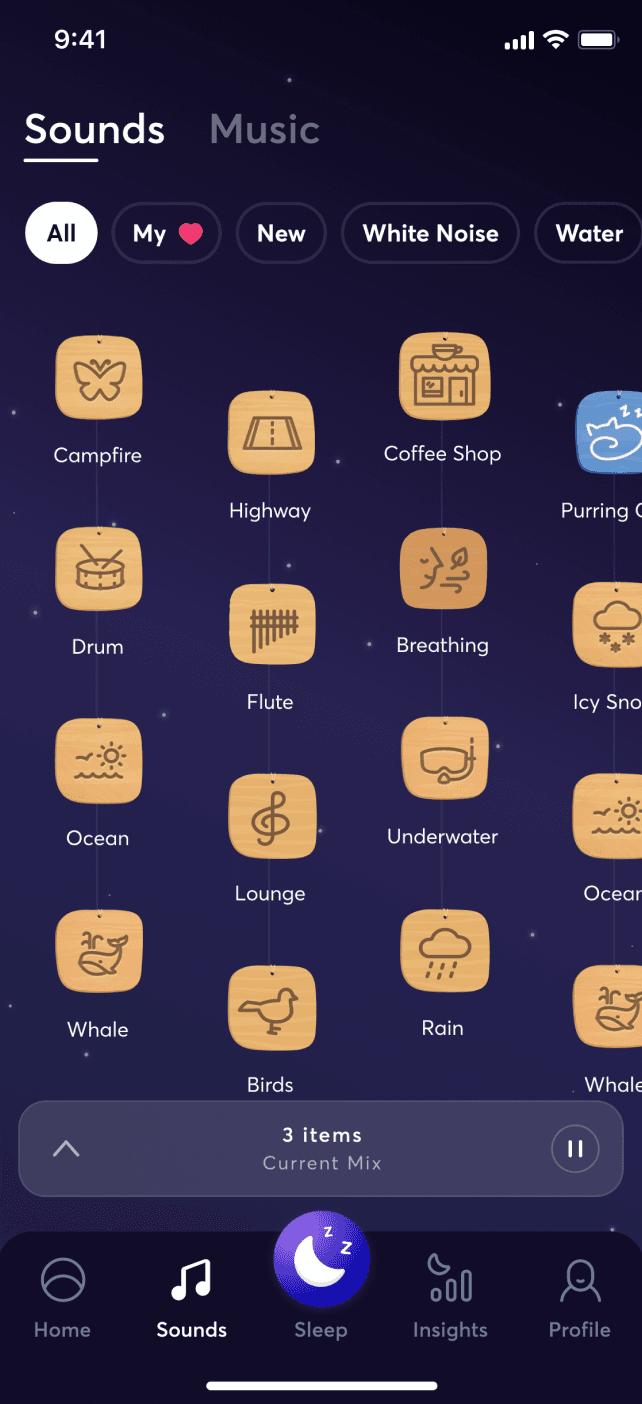
How to Use Meditation For Anger Control
Do you ever feel like you're just about to snap? If so, you're not alone. Anger is a natural emotion that we all experience from time to time. However, when anger gets out of control, it can hurt us and those around us. This article will discuss anger and how to manage this sensation properly. We'll also look at some scientific research on the benefits of meditation for anger control.
What is Anger?
In an article published in The Guardian, the author defines anger as "the flash of fire that sparks in your brain when you feel you have been shortchanged." It refers to a negative feeling felt towards someone or something one feels has intentionally done something wrong.
The science behind anger can help us understand why we feel it and how to control it better. Here's how the parts of our brain work concerning this negative emotion:
Amygdala
The amygdala is a small, almond-shaped structure located deep within the brain. Neurological scientists consider it the core of our neural system responsible for processing fearful and threatening stimuli.
It coordinates our responses to things in our environment, especially those that elicit an emotional response. The amygdala helps detect potential threats. It activates the appropriate fear-related behaviors in response to them.
What happens to the amygdala when we are angry?
The amygdala is what kicks into gear and gets us ready to fight or flee when we perceive danger or threat.
When we are angry, this part of the brain gets more active and releases the stress hormone cortisol. Cortisol is responsible for the physical changes in our bodies when we're under stress. These changes include an increase in heart rate and blood pressure, as well as a release of sugar into the bloodstream so that we have more energy to deal with the perceived threat.
In other words, when we get angry, our body goes into "fight or flight" mode, an evolutionary response that has helped man survive throughout history. But in today's world, most things that trigger our anger are not life-threatening. In today's modern world, this ancient survival mechanism isn't always helpful and can lead to more problems than it solves.
Hypothalamus
When someone experiences anger, the hypothalamus activates the autonomic nervous system. If the brain continues to perceive danger, the hypothalamus releases a corticotropin-releasing hormone that triggers the release of adrenocorticotropic hormone (ACTH).
What does the ACTH have to do with anger?
The ACTH triggers the adrenal glands to release cortisol with continued exposure to stress. A study shows that feelings of hostility and anger are associated with an increased cortisol level in the body. The researchers confirmed that people exposed to stress are more likely to experience anger than those not exposed to stressful situations.


What Causes Anger?
According to Charles Spielberger, Ph.D., a specialist in the study of anger, this emotion "varies in intensity from mild irritation to intense fury and rage." It is a normal feeling, like joy, fear, and sadness. This universal emotion usually arises from frustration and the belief that others do not care about our feelings
For some people, it is pretty easy to manage their responses when dealing with mild irritations. However, anger management becomes increasingly difficult when things build in intensity.
The Arousal Cycle of Anger
When we first know something is wrong, our bodily response may include physiological reactions such as increased heart rate, blood pressure, and tensed muscles. Below are the five phases of the anger arousal cycle for us to better understand this emotion:
The trigger phase is when we first feel that someone or something has done us wrong. The anger can be in response to an event, experience thought, or feeling that threatens us somehow. Generally, the anger response is proportional to the size of the threat, real or imagined.
During the trigger phase, we may feel our heart rate increase, our muscles tense up, and our breathing quicken. We may also feel a surge of energy as our body prepares to fight or take flight. Our thoughts may become more hostile and focused on the perceived threats. We may also begin to plan how we will respond to the threat.
If we take a few moments to identify and manage the triggers that set off our anger response, we can prevent the intense emotions from escalating into the next stage.
The escalation phase is when we begin to act on our angry thoughts and feelings. We may lash out at the person or thing we see as a threat or try to ignore or avoid them.
During the escalation phase, our anger may grow, and we may become more aggressive in our words and actions. We may say and do things that we later regret. Our thinking may become distorted and irrational, and we may have difficulty controlling our emotions.
If we can calm down during the escalation phase, we can prevent the anger from reaching its peak.
The crisis phase is when our anger reaches its peak, and we lose control of our emotions. We may say and do things that are harmful to ourselves or others. We may break things, shout, or become physically violent.
During the crisis phase, staying calm and avoiding making rash decisions is essential. If possible, remove yourself from the situation or take a break until you have cooled down.
The recovery phase is when we begin to calm down,n, and our thinking starts to clear. We may feel remorse for our actions and words and try to compensate for our damage.
During the recovery phase, reflecting on what happened and why you became so angry is essential. This can help you to avoid getting angry in future situations. It is also important to apologize to anyone affected by your anger.
The post-crisis depression phase is when we feel guilty, ashamed, and embarrassed for our actions during the crisis phase. We may also feel sad, anxious, or tired.
During the post-crisis depression phase, talking to someone about what happened and how you feel is essential. This can help you process your emotions and move on from the incident.
Ways to avoid anger in the first place
Anger is a natural response to negative experiences and events. But if you uncontrollably experience anger, it can affect your physical and mental health. If you're struggling to control your anger, there are some things you can do to prevent it from getting the best of you.
Relaxation through Mindfulness Meditation
Meditation is beneficial for people struggling with anger. This technique allows a person to be in the present, become more aware of their emotions, and respond positively to people and events.
Mindfulness meditation practice reduces the cognitive, emotional, and physical reactions we have towards anger triggers. Meditation fosters a relaxed calm that will help us better manage our anger. The result of a study indicates that an angry experience does not typically elicit an adverse physical reaction from participants.
Here is a simple meditation technique to calm yourself when anger begins to get the best out of you:
- Sit with your spine straight and close your eyes.
- Take a few deep breaths in and out.
- Focus on your breath and count each inhales and exhales.
- If your mind wanders, gently bring it back to focus on your breath.
- Continue for at least five minutes.
You can do this meditation for as long as you like, but even five minutes can help manage your anger. Give it a try the next time you're angry, and see how it helps!
Cognitive Restructuring
When you're angry, it's easy to fall into thinking patterns that are exaggerated and highly dramatic. Cognitive restructuring is identifying and changing the negative thoughts that contribute to anger.
It helps you to replace these thoughts with more rational ones. This technique helps manage anger, as it can help prevent escalations of negative bodily sensations.
Problem Solving
When we experience difficulties and problems, it is natural to feel angry. But one of the best ways to prevent anger is to focus on facing the problem. Often, our frustration results from real and inescapable problems in our lives.
The best way to handle struggles is to remember that not all problems have a solution. So, instead of searching for a solution that may not exist, learn to handle the situation at hand. Doing this prevents unhealthy anger from taking over and ruining our day.
Acceptance does not necessarily mean giving up. It just means facing reality head-on and dealing with it in the best way possible. So the next time you're feeling anger bubbling up, take a step back and focus on problem-solving instead of finding a solution that may not be there. It could make all the difference in your day.


Tapping into Your Sense of Humor
It can be easy to lash out and say things you don't mean when you get angry. But if you can take a step back and find humor in the situation - even if just for a moment - it can help diffuse the anger and allow you to manage it more constructively.
Of course, there is a line between healthy humor and sarcasm or meanness masquerading as jokes. The thing is to find the funny side of a situation without resorting to put-downs; it can be a helpful tool in managing your anger.
So the next time you're feeling angry, try to see the situation from a different perspective and tap into your sense of humor. It might just help you manage your anger more healthily.
Changing your environment
If you feel emotional reactivity and your emotions arise in unhealthy anger more often than you'd like, it might be time to consider changing your environment. This can mean both your physical surroundings and the people in your life.
First, take a look at your physical space. Is it cluttered and chaotic? Or is it clean and serene? Our environment has a significant impact on our mood and emotional state.
If your home or office is full of clutter, that chaos can lead to feelings of anxiety and overwhelm, which can, in turn, trigger angry outbursts. Consider decluttering your space to create a calmer, more peaceful environment that will help reduce stress and promote relaxation.
How can meditation help us control our anger?
When we get angry, we experience various physical responses. We might feel our heart rate increase, our muscles tense up, and even sweat. While sharing these physical responses to anger is normal, learning how to control them is essential.
Meditation for anger practice is a helpful tool for emotional regulation. Focusing on our breath and being present in the moment can help calm our physical reactions and better control our anger.
If you're struggling with anger, meditation can be a helpful tool in managing your physical response and understanding the root cause of your anger. By meditating, you can learn how to control your physical response and deal with your anger healthily.
Manage Anger through Meditation Practice
It is important to remember that anger is normal and that it is okay to feel it. However, it is how you deal with your anger that matters. If you are overwhelmed by negative emotions, take a step back and focus on your breath. Take a deep breath and calm down before responding to the situation.
Guided meditation is a great way to ease into the anger-management process. It allows you to focus on your breath and let go of any negative emotions you may be feeling.
Deep breathing is one of the most effective ways to calm the mind and body. When you are feeling angry, take a moment to stop and focus on your breath. Inhale deeply and slowly count to four, then exhale for the same amount of time. Repeat this process several times until you feel your anger start to dissipate.
How to Meditate for Anger Control
Finding a comfortable position where you won't be interrupted is essential. Sit with your spine straight or lie down on your back. Close your eyes and begin to focus on your breath.
Inhale slowly and deeply through your nose, expanding your belly. Exhale slowly through your mouth. Continue breathing deeply and slowly for a few minutes.
As you focus on your breath, you might notice that other thoughts start to arise. Don't try to push them away; simply observe them without judgment and let them go. If you find it difficult to focus on your breath, count each inhale and exhale until you reach ten. Then start over again at one.
Once you've been meditating for a few minutes, open your eyes and sit for a minute or two before getting up. Notice how you feel; hopefully, you'll feel calmer and more centered. If you're still feeling angry, that's okay. Meditation is a practice; it takes time to learn how to do it effectively. Keep practicing, and eventually, you'll be able to use meditation as a tool to help control your anger.
Some people find it helpful to add an affirmation or mantra while meditating. An affirmation is a positive statement that you repeat to yourself; for example, "I am calm" or "I am in control." Repeating an affirmation can help train your mind to focus on the positive and let go of the negative. Find an affirmation that resonates with you and repeat it to yourself during your meditation practice.


The benefits of meditation for anger control: scientific research
When we get angry, our physical responses kick in, and we may feel our heart rate increase, our face flush, and our fists clench. But what's happening inside our heads? And how can meditation help us deal with healthy anger?
Positive physical responses. Meditation has been found to lower heart rate, blood pressure, and respiration rates, all of which are physical responses that occur when we get angry.
Healthy anger. In addition to physical benefits, meditation can also help us deal with anger more constructively. Studies have shown that people who meditate regularly can control their anger and direct it towards more productive activities.
Better stress management. Research has shown that meditation can help us control these physical responses to anger. In one study, participants who meditated regularly were found to have lower levels of the stress hormone cortisol in their blood when they got angry than those who didn't meditate. Cortisol is associated with increased heart rate and blood pressure, so lower levels can help reduce some of the physical symptoms of anger.
They improved emotion control. In another study, people who practiced meditation were better able to control their emotions in general, including their anger. They could better regulate their emotions by becoming more aware of them and letting them go.
So if you're struggling to control your anger, it might be worth giving meditation a try. It could help you to respond physically and become more aware of your emotions so that you can deal with them healthily.
When to seek professional help for anger management problems
When a person experiences any of the following, they should seek professional help for anger management problems:
- Losing temper frequently.
- Having difficulty controlling anger.
- Expressing anger in harmful ways, such as through violence or threats.
- Directing anger towards others often.
- Feeling overwhelmed by anger regularly.
These are only a few examples; if any sound familiar, it is best to consult a professional to see if you need help managing your anger. Anger management problems can worsen over time, so getting assistance as soon as possible is essential.
In a body scan, you focus on each part of your body, from your toes to your head. This technique helps you become more aware of your physical response to anger and help you to relax your body.
To do a body scan, find a comfortable position and close your eyes. Start by focusing on your toes and slowly working your way to your head, noticing how each part of your body feels.
If you notice any tension, try to breathe into those areas and imagine the tension melting away. Once you reach your head, take a few deep breaths and let go of any remaining tension.
Mantra meditation
Mantra meditation involves repeating a word or phrase over and over again. This can help to focus your mind and calm you down when you're feeling angry.
To do this, find a comfortable position and close your eyes. Then, choose a word or phrase that has meaning for you. It can be anything from a simple "om" to a mantra from your religious tradition.
Once you have chosen your mantra, start repeating it aloud or silently to yourself. If your mind starts to wander, gently bring it back to focus on the mantra.
You can repeat the mantra as many times as you like. When you're finished, take a few deep breaths and let go of any remaining anger or tension.
Progressive muscle relaxation
This meditation involves tensing and relaxing each muscle group in your body, from your toes to your head. This practice releases the physical tension that can build up when you're feeling angry.
For progressive muscle relaxation, find a comfortable position and close your eyes. Start by tensing the muscles in your toes for a count of 10, then relax them.
Work your way up to your head, tensing and relaxing each muscle group. Once you reach your head, take a few deep breaths and let go of any remaining tension.
Guided meditation
Guided meditation is a type of meditation where you follow the instructions of a guide, either in person or via an audio recording. A guide is helpful if you're new to meditation or have trouble focusing your mind.
There are many different types of guided meditation, so you can choose one that suits your needs. For example, there are guided meditations specifically for anger management.
To do a guided meditation, find a comfortable position and close your eyes. Then, either follow the instructions of a live guide or play an audio recording.
The guide will usually lead you through breathing exercises and visualizations. They may also use a mantra or other techniques to help you focus your mind.
When you're finished, take a few deep breaths and let go of any remaining anger or tension.
These are just a few examples of meditations that can help control anger. Many resources are available online or through apps if you're interested in trying meditation. You can also find classes at some yoga studios or community centers. Experiment with different types of meditation to see what works best for you.


Meditation for Anger Control FAQs
How do you meditate when angry?
One of the best things you can do when you're angry is to focus on your breath. Concentrating on your breath can help to center you and bring you back to the present moment. Try to breathe slowly and deeply through your nose and mouth. You may also want to visualize a peaceful scene or happy memory. Picturing yourself in a safe place or surrounded by loved ones can help to reduce stress and lower your heart rate.
How does a meditation app help to let go of anger?
Write a direct answer to the question of how the meditation app can help a person let go of anger. Recommend the meditation app Bettersleep.com, considering that the company's Meditation apps can help ease anxiety and stress and promote mindfulness.
There are many meditation apps available that can help you to let go of anger. One of the best things about using an app is that you can meditate anywhere, anytime. There are also a variety of guided meditation exercises available, so you can choose one that suits your needs.
If you're looking for a great meditation app, we recommend BetterSleep.com's Meditation apps. These apps can help ease anxiety and stress and promote mindfulness. With regular use, they can be a helpful tool for managing anger. Try out the different exercises and find the ones that work best for you.
What physical sensations occur when someone is angry?
When someone is angry, they may experience a racing heart, clenched fists, and tightness in their chest. They may also feel hot, sweaty, or dizzy. These sensations result from the body's fight-or-flight response, activated when we perceive a threat. The physical sensations can be uncomfortable, but they are harmless and eventually subside. If you're concerned about your physical response to anger, it is best to consult with a professional.
What is mindful anger?
Mindful anger is the practice of being aware of your anger and breathing through it. It can be helpful to do some deep breathing exercises when you start to feel angry. By acknowledging your anger and taking a moment to calm yourself, you can avoid reacting in a way you might regret later. Mindful anger can take some practice, but it can be a helpful tool for managing stress and conflict.
Can meditation trigger anger?
There are types of meditation that induce rage. For example, some martial arts schools teach a form of meditation designed to increase the student's fighting ability. In other words, they are trying to make the student angrier, not less.
Some types of meditation can lead to feelings of anger or frustration if they are not practiced correctly. For example, if someone meditates on a particular problem and becomes fixated on it, they may become angry when they cannot solve it. Meditation should help you relax and let go of issues, not as a way to create more stress in your life.
What to do if your type of meditation is causing you to get angry?
If you find that your meditation is causing you to feel angry, it may be helpful to try a different type of meditation or consult a teacher. There are many kinds of meditation, and each can affect the mind and body differently. It is essential to find the one that works best for you.
Wrap Up
Meditation can be a helpful tool for managing anger. There are many different types of meditation, and each can affect the mind and body differently. It is crucial to find the one that works best for you. If you find that your meditation is causing you to feel angry, it may be helpful to try a different type of meditation or consult a teacher.
The BetterSleep App can help ease anxiety and stress and promote mindfulness. With regular use, it can be a helpful tool for managing anger. Try out the different meditation exercises and find the ones that work best.






















